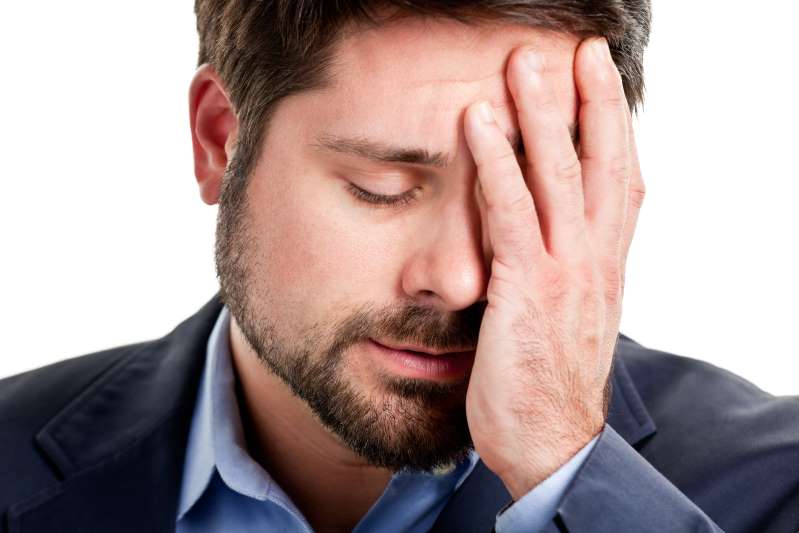Learn about brain health and nootropics to boost brain function
What REALLY happens to your body when you don’t get enough sleep: Experts share the results of a poor night’s rest – from brain fog to bad skin


Experts have revealed exactly what happens to your body and mind when you don't get a decent night's sleep.
Sleep deprivation is a problem for many Australians, as 7.4 million adults say they don't get enough rest, according to a report by the Sleep Health Foundation.
Some of the issues you might face when struggling with sleeplessness are poor concentration, lacklustre skin and being more susceptible to illness.

1. Memory and concentration problems
As well as restoring the body, sleep is also vital for re-balancing the mind.
Sleep.org explained when people are awake, the brain actively produces a chemical called adenoisne, a by-product of cell activity.
A build-up of this chemical causes you to feel sleepy, and while you sleep your body clears itself of this chemical, which helps you to wake up feeling refreshed and alert.
Gallery: These tips will help you sleep better (Showbizz Daily)
If you've not slept well, you may find yourself battling 'brain fog' - a consequence of not clearing your system of adenoisne.
Experts at Bed Threads also said even one night's interrupted sleep has an impact on brain function, in particular on memory.
'Activity in the memory centre of the brain (hippocampus) is reduced. This means that you'll find it harder to solve problems and remain focused throughout the day,' they said.
It can be difficult enough avoiding the many germs circulating in offices or on public transport.
But one thing you can to boost you immune system is to ensure you get the required amount of slumber each night.
Without proper sleep, the body is unable to perform its natural healing processes including repairing damaged cells or releasing 'fighter' cells.
This means if you're exposed to bugs or viruses, your body may be more susceptible to illness.
You've likely heard the term beauty sleep, a concept that refers to waking up looking your best after a great night's rest.
The reason why it exists is that while you are sleeping the body is working hard to produce a specific type of growth hormone as well as refreshing and repairing cells.
'If you're losing out on sleep regularly, collagen production decreases which means your skin can lose elasticity and firmness which makes us look healthy and refreshed,' said Bed Threads experts.
4. Mood swings
A lack of sleep impacts logic, something that has a knock-on effect in regard to emotions.
Moodiness and an inability to regulate how you feel can be attributed to sleep deprivation - and can lead to all manner of personal and professional problems.
'Sleep loss will make us feel more upset, angry and sad in response to unpleasant events and make us less able to enjoy and be happy about good things in our life,' according to Sleep for Health Foundation.
Primary school children – need about nine to 10 hours. Studies show that increasing your child’s sleep by as little as half an hour can dramatically improve school performance.
Teenagers – need about nine to 10 hours too. Teenagers have an increased sleep requirement at the time when social engagements and peer pressure cause a reduction in sleep time. Lifestyle factors such as early school start times deprive them of the required sleep-in. There is evidence that around the time of becoming a teenager, there is a shift in the sleep-wake cycle to being sleepy later in the evening with a preference for waking later.
Adults – need about eight hours, depending on individual factors. We tend to need less sleep as we age, but be guided by your own state of alertness – if you feel tired during the day, aim to get more sleep.
People who consistently fail to get enough sleep are at an increased risk of chronic disease including illness likes heart disease, diabetes and high blood pressure.
Sleep deprivation is also linked to other issues including weight gain and obesity.
This is because as you sleep the body produces leptin, a hormone related to energy expenditure.
A lack of sleep reduces this hormone and leads the brain to produce more of the hormone ghrelin, which triggers feelings of hunger.
* Drink alcohol before bed. This is particularly important if you’re waking up in the middle of the night – that’s your liver shouting at you.
* Drink caffeine after midday.
* Sip on green tea after midday. A lot of people are sensitive to its caffeine content and don’t know it.
* Eat refined sugar – it spikes your blood sugars, which can disrupt sleep.
Speaking previously to FEMAIL, holistic nutritionist Lee Holmes revealed why a poor night's sleep can lead to food cravings.
'Our intestines produce and release serotonin and dopamine which affect our mood and our sleeping patterns. As night-time approaches, our serotonin levels increase and send signals to the brain to rev up our melatonin, the hormone that stimulates sleepiness and controls sleep,' Lee told Daily Mail Australia.
'Not getting enough sleep can even cause food cravings. After some sleep deprivation, the brain is more likely to seek out "rewards" in the form of chips, pizza, chocolate and you know the rest.
'When sleep-deprived, the lower part of our brain increases its function and the upper part of our brain function decreases, leading us to crave junk foods and skip the kale, quinoa salad.'
Click here to view full article